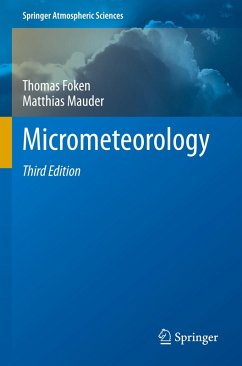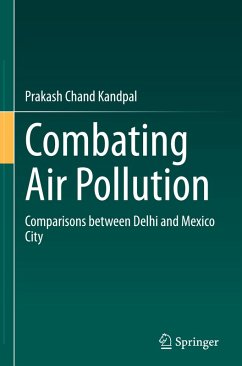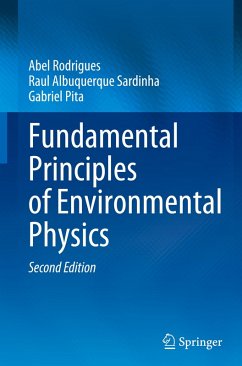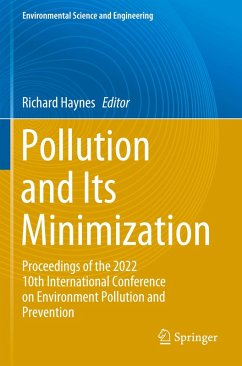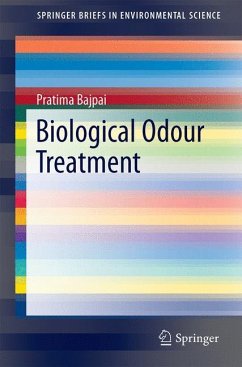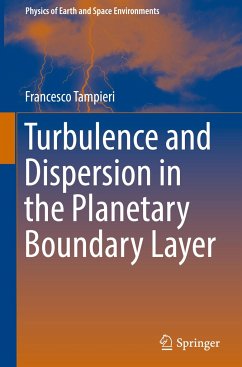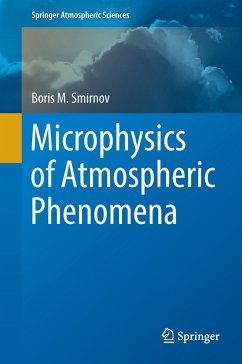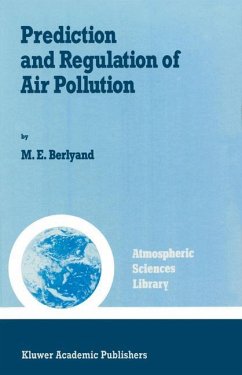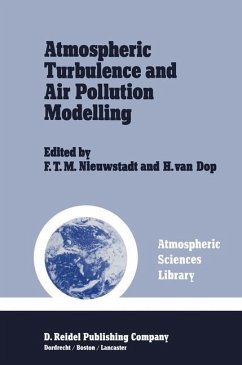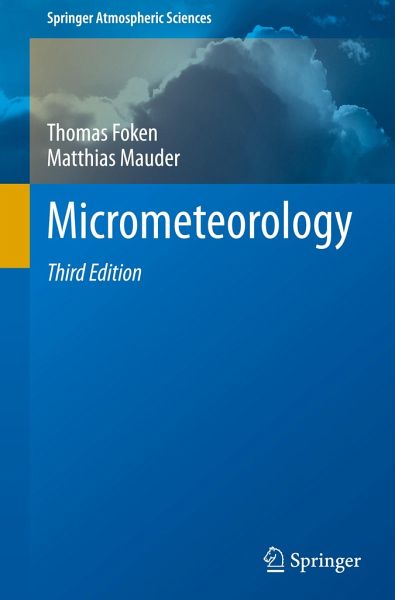
Micrometeorology
Versandkostenfrei!
Versandfertig in 6-10 Tagen
76,99 €
inkl. MwSt.
Weitere Ausgaben:

PAYBACK Punkte
38 °P sammeln!
The book focuses on atmospheric processes that directly influence human environments within the lower 100-1000 meters of the atmosphere, spanning regions of only a few kilometers in size. It represents the English translation of the fourth edition of the German work titled "Applied Meteorology - Micrometeorological Methods". It provides a fundamental understanding of micrometeorology as applied to various disciplines, including biometeorology, agrometeorology, hydrometeorology, technical meteorology, environmental meteorology, and biogeosciences, through carefully selected examples.A central t...
The book focuses on atmospheric processes that directly influence human environments within the lower 100-1000 meters of the atmosphere, spanning regions of only a few kilometers in size. It represents the English translation of the fourth edition of the German work titled "Applied Meteorology - Micrometeorological Methods". It provides a fundamental understanding of micrometeorology as applied to various disciplines, including biometeorology, agrometeorology, hydrometeorology, technical meteorology, environmental meteorology, and biogeosciences, through carefully selected examples.
A central theme of this book revolves around the crucial issues of transport processes and fluxes between the atmosphere and the underlying surface, with special emphasis on vegetated and heterogeneous surfaces. The authors comprehensively cover theory, measurement techniques, experimental methods, and modeling, presenting these concepts in a manner that can be readily applied for teaching, research, or practical applications.
Compared to the second edition, the new features include updates and minor additions in all chapters, as well as selected new content that addresses the challenges posed by climate change.
A central theme of this book revolves around the crucial issues of transport processes and fluxes between the atmosphere and the underlying surface, with special emphasis on vegetated and heterogeneous surfaces. The authors comprehensively cover theory, measurement techniques, experimental methods, and modeling, presenting these concepts in a manner that can be readily applied for teaching, research, or practical applications.
Compared to the second edition, the new features include updates and minor additions in all chapters, as well as selected new content that addresses the challenges posed by climate change.





